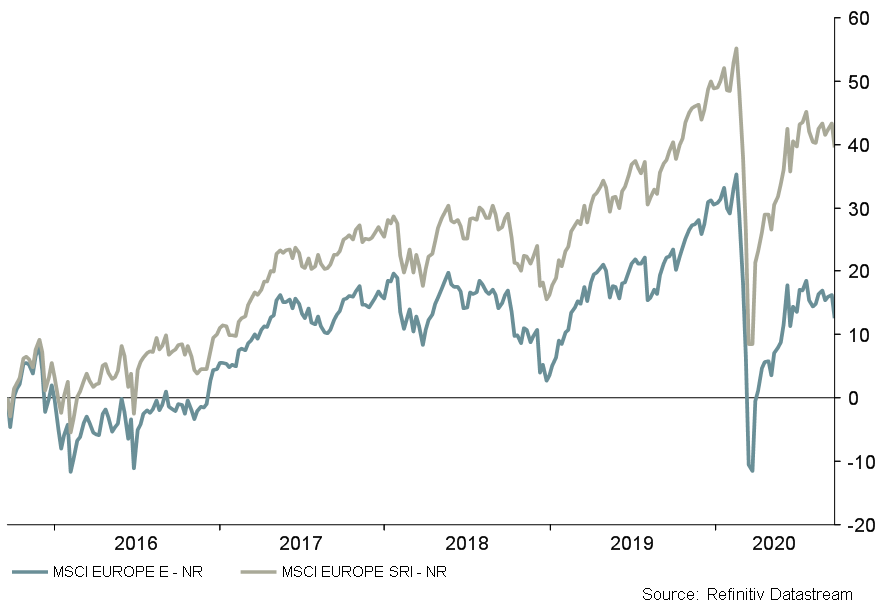
Socially Responsible Investing, or how to achieve both good returns and a positive impact

Socially Responsible Investing (SRI) applies the concept of sustainable development to financial investments. As well as seeking good financial returns, SRI aims to support businesses that create significant social and/or environmental value added.
ESG criteria: ensuring responsible investments
With SRI, portfolios are managed by systematically applying Environmental, Social and Governance (ESG) criteria when assessing and selecting assets. These criteria mean that investors can rely on their money being invested responsibly:
- environmental criteria are used to assess the impact that a company has on its environment (greenhouse gas emissions, water resource management, waste management etc.);
- social criteria look at a company’s impact on its employees, customers and suppliers (in terms of human rights);
- governance criteria are used to evaluate the way a company is managed.
Investment approaches that fit with your priorities
SRI funds offer two main approaches. The theme-based approach focuses on specific investments in a single area, for example companies operating in the water or renewable energy sectors. “We try to find companies that will help resolve global issues,” explains Guy Janssens, Head of Sustainable and Responsible Investments at BNP Paribas Fortis.
The best-in-class approach, meanwhile, consists of investing across all sectors, but only in companies that adopt best practice in their respective fields. “For example, we may invest in a carmaker that has a clear strategy for developing clean vehicles.”
A label providing greater transparency and clarity
As SRI has grown, labels have been developed to give investors transparency and clarity. In Belgium, Febelfin’s “Towards Sustainability” label has become a real reference point.
To qualify, investments must be transparent, feature ESG analysis across all portfolios and apply exclusions including strict rules regarding coal and unconventional fossil fuels.
“We now offer our customers Belgium’s broadest and most diverse range of sustainable investment products, with 93 products featuring the Febelfin label”, continues Guy Janssens. Those 93 funds currently represent €25 billion of assets under management (as opposed to €19.4 billion at the end of 2019), making up 34% of total assets under management in our funds for retail investors.
Reconciling good financial returns with positive impact
While SRI allows you to invest according to your values, it also enables you to achieve good financial returns. “Studies show that the returns produced by SRI funds are equal to or higher than those of traditional funds. That’s not just because they invest in areas currently seeing rapid growth, such as renewable energies and sustainable real estate, but also because sustainable companies are often more resilient during a crisis.”
This chart compares the performance of the MSCI Europe SRI index with that of the equivalent traditional index.
